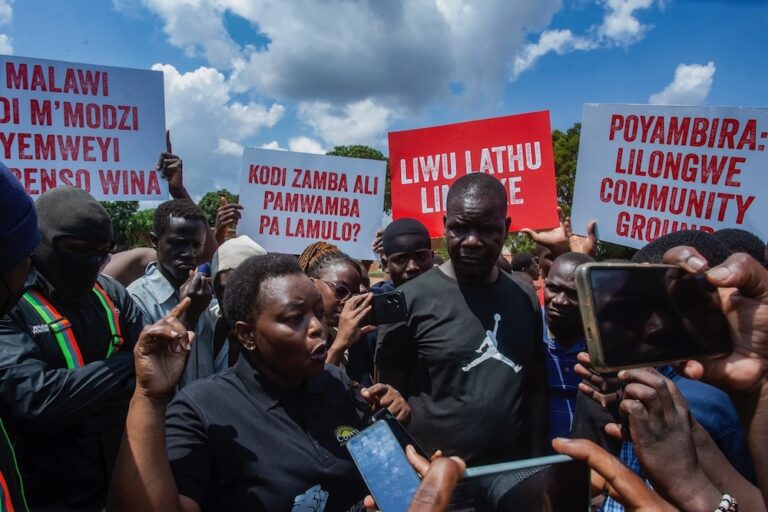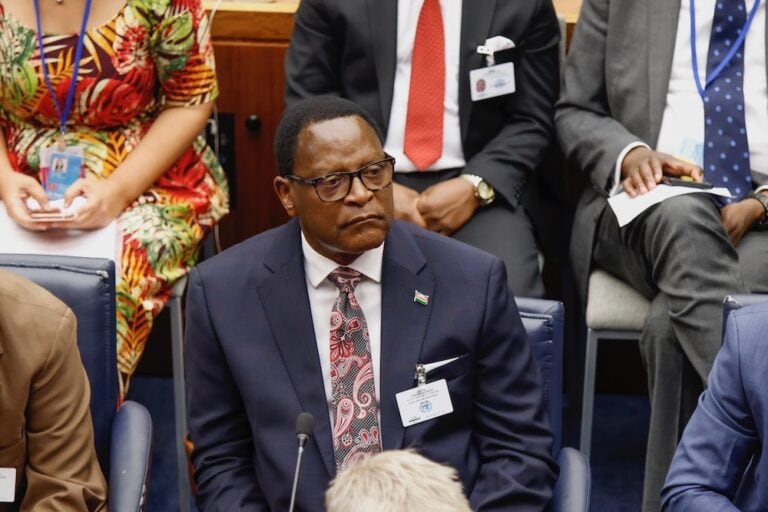The Malawi Broadcasting Corporation gained notoriety for serving only President Bingu wa Mutharika while shutting out other independent voices.
(MISA/IFEX) – 6 February 2012 – A recent report released by the civil society organisation Civic and Political Space Platform (CPSP) shows that the media in Malawi continue to grow despite facing very tough conditions. The 34-page-report, titled Status of Governance Report in Malawi, has dedicated a chapter on media and governance in Malawi.
The report covers research conducted in the period 2009-2010 and is silent on 2011, a year in which most private media and independent journalists came under fire in Malawi. Reporters Sans Frontières, a global media-monitoring organisation that issues an annual press freedom index, shows that Malawi has plunged 67 places down, to 146 out of 175 countries, the biggest plunge by any country.
However, CPSP Chairperson Moses Mkandawire told BizCommunity, despite the report being based on 2010 research, the findings still carry a significant ring as the status quo has not quite improved.
“If you are looking at 2010 in terms of the issues that emerged and then you reflect on 2011, I think they are almost the same issues that we are into. This is just a manifestation but I think the problems started way back in 2009 in terms of mismanaging our public resources but also providing poor leadership in the overall political development,” said Mkandawire.
According to the report, public broadcaster the Malawi Broadcasting Corporation (MBC) gained notoriety for serving only president Bingu wa Mutharika while shutting out other independent voices. MBC, the report notes, has also been actively campaigning for Mutharika’s younger brother Peter to be a presidential candidate in 2014. This was done via a television programme called Road to 2014.
“As a public broadcaster funded by all taxpayers, MBC annoyed many sections of the nation by its refusal to open up its airwaves and electronic transmissions to opposition political parties, and its penchant for only monitoring government propaganda and political campaigns,” the report says.
The work of private media has not been made easy in mitigating against this blatant abuse of the public broadcaster. The government of Malawi has previously issued a directive to all its departments, advising them not to advertise with Nation Publications Limited, one of the most prominent publishing houses, with three newspaper titles, as a way of punishing them for negative coverage.
Also, Mutharika supporters at a press conference, ostensibly for “asking the wrong questions,” have heckled at least one journalist, Mike Chipalasa, from Blantyre Newspapers Limited, the oldest publishing house in Malawi. The Malawi chapter of the Media Institute of Southern Africa (MISA-Malawi) has condemned such practices and have engaged with the Mutharika administration to avoid future occurrences of such incidents.
Also, a heavy blow was struck at the media by parliamentary passing of the amendment to Section 46 of the Penal Code, which empowers the minister of information and civil education to ban publications s/he considers to be not in the public interest, meaning those the government does not like because of their critical tone.
Despite all this, among several encouraging developments within the research period, which had a bearing on the media as a vehicle and watchdog of democratic values and principles, was the sheer growth of the media industry, both print and electronic, and its capacity to reach out to many sections of Malawi society, which was phenomenal.
The same applied to media institutions like Media Council of Malawi (MCM) and MISA-Malawi, which were able to consolidate their role as guardians and advocates of media interests. However, the report does not spare the media, which it says created the challenges for itself. “These included the fact that some media institutions remained inactive. This applied to organisations like Journalists Union of Malawi (JUMA) and press clubs which were not as active as expected, due to scarcity of resources and lack of sponsorship,” says the report.


